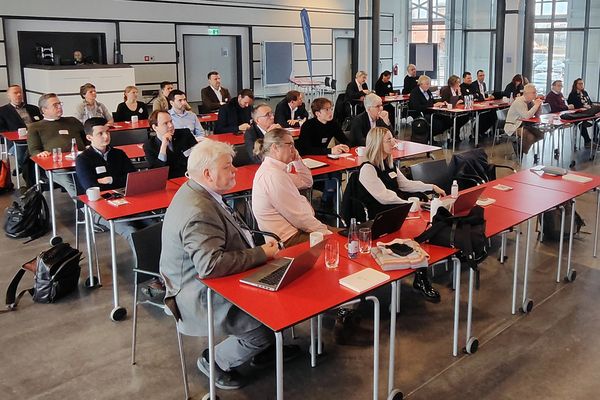Three German maritime organisations helped attracting 35 of the most creative brains in the German sector. The event was organised as part of a series of workshops in the Baltic countries arranged and led by policy areas for maritime safety and security and for clean shipping within the EU Strategy for the Baltic Sea Region. The target is to find new project ideas that partners across the region can develop, and the ultimate goal is to design transnational projects for safer and cleaner Baltic Sea. The Idea Generation Workshop in Lübeck on March 6 resulted in a record-breaking 43 ideas.
Holger Klindt, representing the expert group Maritime Safety of the Maritime Cluster Northern Germany, the German Association for Marine Technology and the Bremen-based MARISSA cluster for Maritime Safety and Security Applications, said: “It was a refreshing new way of bringing together the in-depth experience of our national maritime community with the strategic aims and objectives as identified within and by the EUSBSR policy areas ‘SAFE’ and ‘SHIP’. Our national experts are keen to cooperate with our Baltic neighbors, to improve safety, security and sustainability of shipping in the confined waters of the Baltic! In a next step now we shall continue to qualify and select the most promising proposals and start building partnership networks around them.“
Milla Harju, Policy Coordinator for Clean Shipping added “The EUSBSR policy areas have an excellent network across the region and we are happy to help qualify the ideas not only in Germany, but with experts around the Baltic Sea to form fruitful partnerships.”
The ideas spanned across many subjects like new fuels, cyber and physical security issues, climate change. Some ideas were big – a common operational picture for the Baltic Sea; protecting the shores against climate change, while some ideas were very concrete – a common website to show where jamming of GPS signals is ongoing; and monitoring engine temperatures and explosion risks for new fuels.
